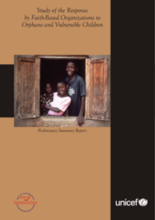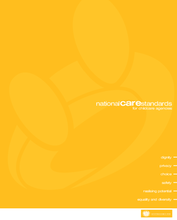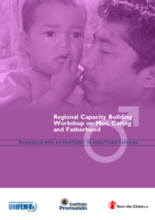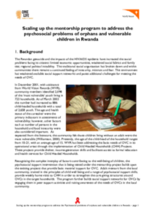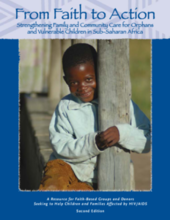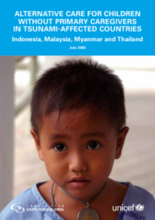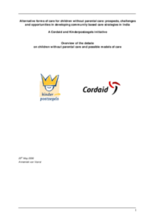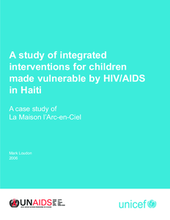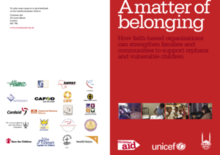Displaying 861 - 870 of 922
A study that looks at the response of faith-based organizations in Kenya, Malawi, Mozambique, Namibia, Swaziland, and Uganda. The report contains statistical information, and details positive care practices to build on, and negative examples to avoid.
A set of standards for agencies that provide child care/day care services within the family home e.g. nannies, child minders, and babysitters.
This report captures the discussions and activities from a workshop held in Kathmandu, Nepal on 17-19 October 2005 on engaging men as caregivers. The report presents a background and rationale, the expectations and objectives of the workshop, and an overview of work being done to engage fathers both in the region as well as globally.
Outlines the results of World Vision Rwanda’s mentorship program for children in child-headed households and other OVC. Includes challenges and lessons learned.
A tool to encourage donors to fund community programs that keep children in family care, rather than simply funding orphanages. Describes the many strategies being used to invest in community-based care, and contains specific program examples.
An assessment of alternative care responses for children without primary caregivers in tsunami-affected regions of Malaysia, Myanmar, Indonesia, and Thailand. Includes good practices, recommendations, and detailed country reports.
Detailed examination of debate over institutional and alternative care methods for children without parental care. Includes comprehensive framework for collective action.
Examines a community-based care program for children living with HIV in Haiti called Arc-en-Ciel. Includes an overview of services provided (residential care, home based care, and community mobilization) and lessons learned.
An evaluation of a programme in Sri Lanka that aimed to resettle and reintegrate children affected by armed conflict, prevent and respond to child abuse, and develop community based alternatives to institutional care.
A guide for faith-based organizations working in developing countries on issues related to orphans and vulnerable children. Contains examples of successful community-based and family support care programs throughout the world that are run by faith-based groups. Discourages the use of institutional care and orphanages.

